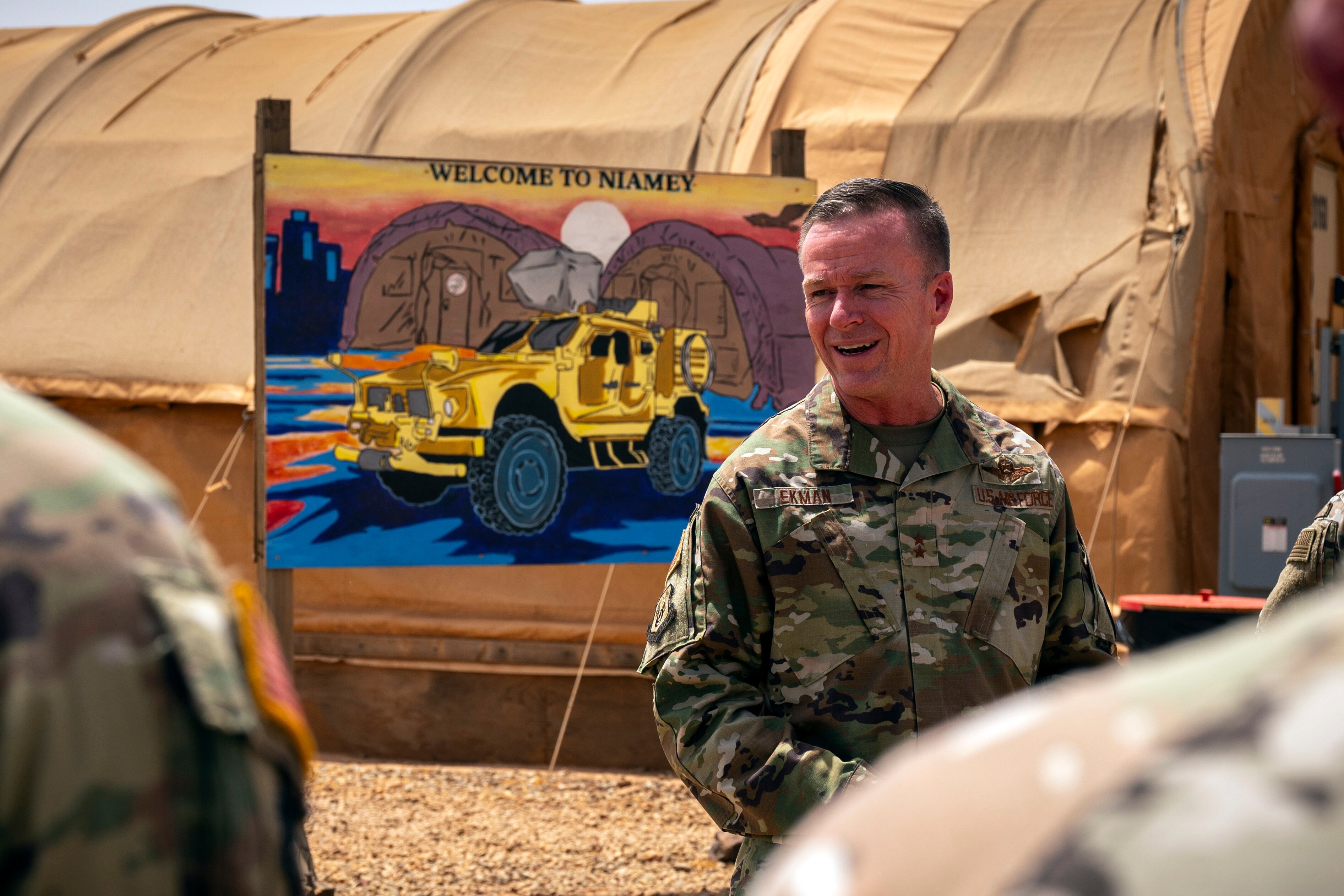The U.S. will depart from a second and final base in Niger Monday, all but ending a monthslong withdrawal from what was once a vital partner in the fight against terrorism, two American defense officials confirmed.
One of the officials stressed that this didn’t mean America’s exit was complete. But Air Base 201 was the final U.S. military site in the West African country after forces exited Air Base 101 in the capital of Niamey this July.
Shortly after a group of U.S. officials visited in March, a spokesman for the Nigerien military announced in a televised address his government was ending its counterterrorism agreement with the U.S.
The news came as a surprise in Washington, where officials tried to understand whether it was official policy. Weeks of negotiations followed, and in May the U.S. agreed to end its military presence, setting a deadline of September 15.
The choice came at a huge military cost, both in dollars and opportunity. America had spent more than $100 million building Air Base 201 and finished only five years ago. America’s 1,000 troops in the country were a bulwark against rising terrorism in the region — launching their own operations and training the Nigerien military to do so.
Their partnership began to fray last summer, when Niger’s military overthrew its government and formed a ruling junta. It took the U.S. months to label it a “coup,” a legal term that restricts American aid and military activity.
The U.S. delegation visited in March to try and soothe the relationship, though the Nigerien spokesman said in his address he felt hectored about multiple American concerns, including Niger’s ties to Iran and Russia.
Many analysts in Washington have warned America is losing a contest for influence on the continent to adversaries like Russia and China, who are less bound by concerns over human rights and democracy.
A senior Pentagon official, speaking to Defense News in July, disputed that narrative.
“This isn’t a case where [Niger has] chosen Russia over us,” the official said. “They are equally skeptical of external outside actors.”
Russian forces ended up staying on the same base as America’s military in the capital this year, though the two sides were far apart and didn’t interact, the official said.
‘An anchor’
There has been a wave of coups in West Africa in the last several years. Many of the new governments, including Niger’s, have resisted outside influence.
They’ve chosen not to work with the Economic Community of West African States, or ECOWAS, a bloc of regional countries. Many have also severed ties with France, a counterinsurgency partner though one with heavy baggage as a former colonial power.
For the U.S., losing access to Niger will hinder its fight against terrorism, one of the top priorities in the nation’s guiding defense strategy. The Sahel region’s share of global terrorist-related deaths rose from 1% in 2007 to 43% in 2022, according to the Global Terrorism Index.
“Niger has been really an anchor for our counterterrorism efforts over a decade,” said another senior U.S. defense official briefing reporters in May.
Located near the central city of Agadez, Air Base 201 was once an emblem of the two countries’ close partnership. The U.S. spent years building it to launch drone operations and has used its military presence to train Nigerien forces as well.
The relationship isn’t over, and America’s military has tried to withdraw without showing hard feelings, the first senior U.S. official said. It’s leaving some equipment behind that’s either fixed or more expensive to move than it’s worth. And it’s not disabling those assets on the way out.
Equipment that’s been removed is returning to the Pentagon’s stores to be distributed elsewhere. Amid the withdrawal, the U.S. has been speaking with other partners in the region about their relationships, though the first official cautioned that there wouldn’t likely be any large new construction projects anytime soon.
Regardless, those wouldn’t help with a bigger issue: losing the right to fly over the Sahel and scan for threats.
“Even if we were to lift the exact thing that we had in Niger and put it somewhere else, we’re not able to monitor the threat in the same way,” the first official said. “Our ability to monitor has been degraded by the loss of overflight permissions.”
Multiple U.S. officials have stressed the U.S. is still open a partnership with Niger going forward and that parts of Niger’s ruling military also share that interest. Even today, Nigerien forces are conducting counterterrorism operations using American-provided equipment and tactics learned from American soldiers.
With Niger and other countries in the region, America’s military will continue discussing what their future relationship looks like. But the first priority, the official said, is finishing the withdrawal.
“This isn’t the outcome of our choosing,” the official said. “But there’s no reason to leave with sour grapes.”
Noah Robertson is the Pentagon reporter at Defense News. He previously covered national security for the Christian Science Monitor. He holds a bachelor’s degree in English and government from the College of William & Mary in his hometown of Williamsburg, Virginia.




